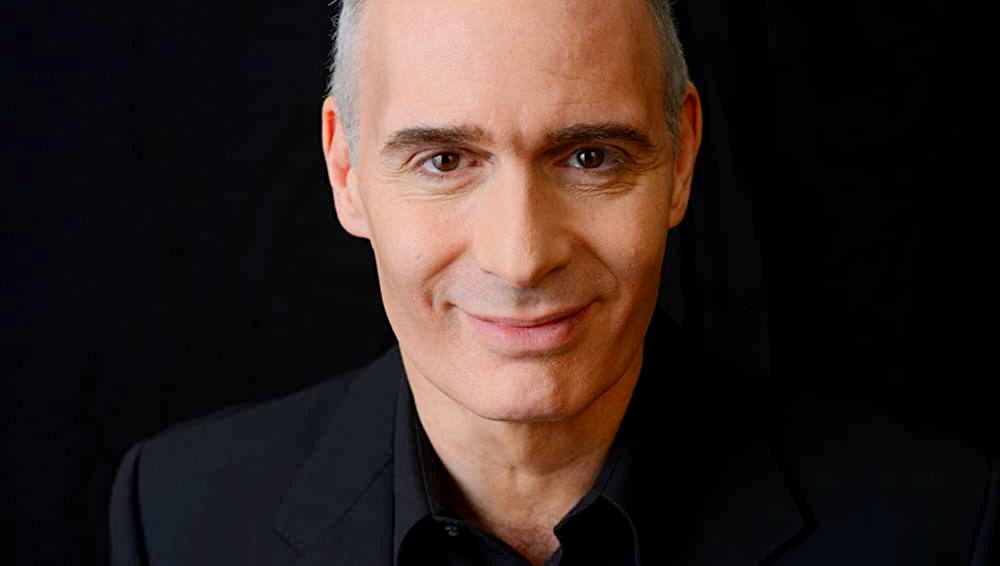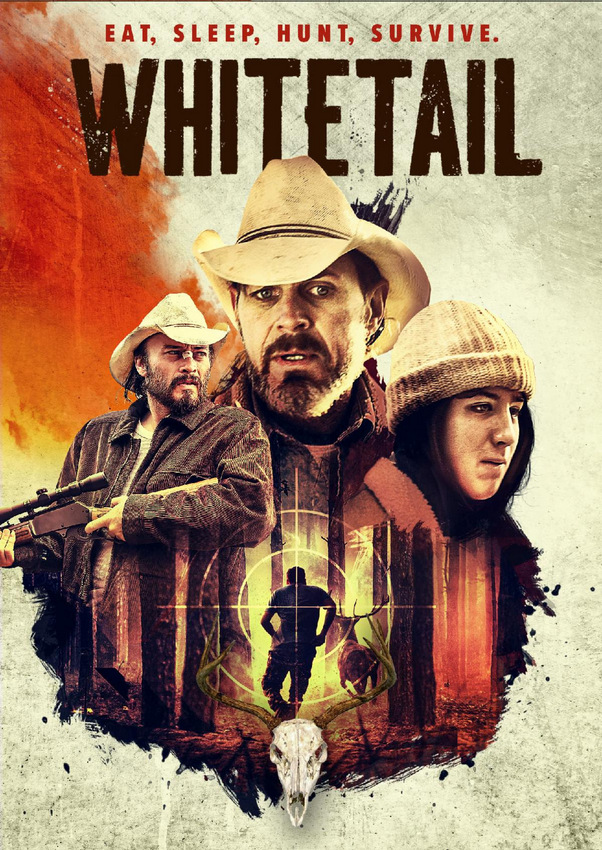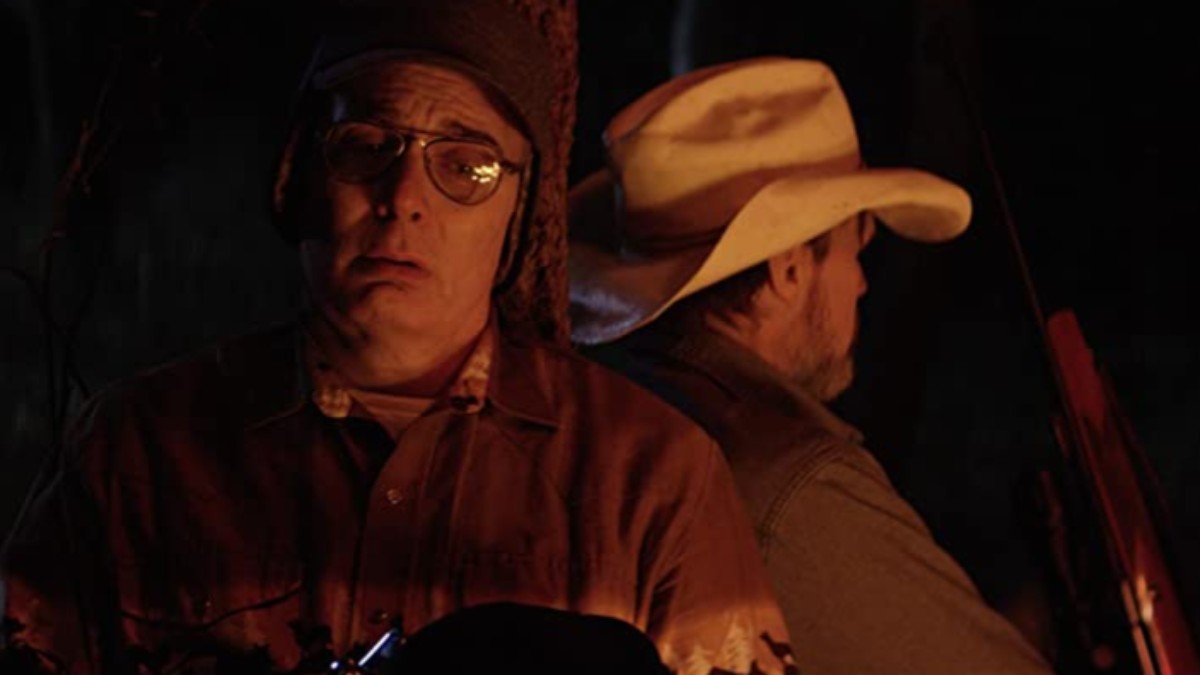
I’m the grandson of a vaudevillian trumpet player. And my dad was a dentist, but he did a lot of community theatre. I think he wanted to be an actor, but because he was brought up during the Depression, he worked his way through dental school instead.
Watching him playing Felix in a production of The Odd Couple gave me the urge to try it. I was just a kid when I knew I wanted to be an actor for the rest of my life. It was a production of a children’s theatre play called The SpoofyDoof’s FunnyBone that infected me. I played a near-sighted Spoofydoof named Goggles. Comedy gold.
indieactivity: What acting technique do you use?
Paul T Taylor (PTT): I have studied Meisner and I think it’s a wonderful acting tool, but I can’t honestly say I use only one method. It really depends on the role. There are times when it’s very painful to be internal, but that’s where the good stuff is. I use whatever works for a particular character. Depending on how much I relate to a character, I can either start with an external way of being and let it get into me or I just learn the words and let it come out organically.
Watch the official trailer for Whitetail
But as David Mamet says, “There is no character; there are only words on a page”. I believe that’s true to an extent. Learn the words and say them like you mean them, whatever that requires for the specific character in the specific project. If you get off on getting into it, so much the better. We don’t act for ourselves, we act for the audience.
How did you become involved with WHITETAIL? Did you have to audition?
Paul T Taylor (PTT): I had no audition. Derek has known me for many years. We first worked together when he directed me in a pilot called SHELTERED, a dark comedy about a homeless shelter (I played a suicidal counselor). We remained friends and he sent me several scripts over the years with me in mind for certain roles, but WHITETAIL is the first one to be produced.
How did you prepare for the role of Frank Hughes in WHITETAIL; the cast, the physicality, the terrain, the climate, weather and the demands of the project?
Paul T Taylor (PTT): I learn the lines in sections, beats. As a theatre actor, I’m all about rehearsal and the goal of opening night. Preparing for a film is a bit like that, too, except opening night is when the director calls “Action.” For Frank, because it’s such a serious piece, I used sense memory in the substitution of my dead sister and my own sense of doom, annihilation. We did have a few read-throughs/rehearsals at producer Austin Williams’ home before the shoot and I was in close contact with Derek, with almost daily conversations about Frank’s relationships and history. He did some adaptation of Frank to fit me better and I’m very grateful for that.

In this film you were one of the key protagonists, but you’ve also played iconic villains, like PinHead in Hellraiser: Judgement. Do you prefer to portray the “good guy” or “bad guy”? Are there any special challenges that come along with each, or differences/unique preparations?
Paul T Taylor (PTT): Playing Pinhead was a wonderful head trip and a dream come true. He was always my favourite 80’s horror icon, so to inherit the role was just fantastic. I love playing bad guys with power. I love playing assholes, too. I don’t have a preference between good guys and bad guys, but Frank’s vulnerability and the pain of playing him was exhausting.
Exhausting and exhilarating. I loved being on that set! In playing Frank, I used my own history of anguish, disappointment, anxiety/depression and I became a bit of a mother hen to Donny because somebody had to do it. For the all-powerful God-like monster of Pinhead, I went to a very dark place, my goal was to have no vulnerability and no fear. The complete opposite of Frank.
How do you create the character from a script into a person?
Paul T Taylor (PTT): As I said before, I learn the lines. That process has a way of getting into you, making it organic. If I have experiences that lend themselves to being the character, I use them. If not, I just use my imagination and fake it until it feels real to me. I received direction from Derek, but he really trusted me to bring my own interpretation to the role. We rehearsed and talked before the shoot, so on-set direction was minimal. He’s a very collaborative director.

What part of the story challenged you when you read it? What drove you to join the project?
Paul T Taylor (PTT): The biggest challenge was the scene at the campfire, talking about my dead sister. Also, the challenge of playing someone who hunts for relaxation was totally foreign to me. The reason I joined the project is I loved the script and I trust Derek implicitly.
What, if anything, do you think the story has to say about masculinity and “manhood”?
Paul T Taylor (PTT): It’s toxic masculinity that is so much of what is wrong about the human species. We are so imperfect, this thirst for power over others. Frank is more of a mother figure in the film than anyone else, he cries, he’s in touch with his emotions, he’s terrified. Personally, white men are to blame for so many things that have affected me negatively in my life, so much pain and disappointment, I can’t even go there in this conversation.
Hunting is in our DNA, but it’s thought of as a sport. Baseball is a sport. There’s nothing sporting about shooting a deer, it’s murder. It’s just not my thing, obviously.
Your character was the primary caregiver to Donnie Mann, a boy with Autism Spectrum Disorder (with seemingly moderate to severe symptoms). Did you have to do any special preparation or education about ASD for the role? Did you learn anything new or surprising about the Disorder during production?
PTT: I have a few friends who have sons with ASD. Talking to them was very helpful. I studied a few articles about the subject. The thing that surprised me the most was how logical these people are. Also, how much I can relate to their desire to avoid human contact. People can be so poisonous and I’m a bit of an empath, toxic people literally make me sick. It’s a fascinating thing, the ways our minds and emotions work.

Explain one creative choice you took on the set of this production?
PTT: I decided that if I cried it was okay. Watching the film, I know I could have made Frank “stronger,” as in having more control over his emotions, but his perceived weakness makes his last scene even more devastating. He’s a conduit for the audience in a way. Derek and I discussed this at length beforehand and he left it up to me.
You’re not new to indie films. What do you enjoy about indie films vs major budget features that keeps you coming back?
PTT: I love being on major budget films, but I almost always have more fun on an indie set. It’s like doing community theatre in a way (though WHITETAIL is in no way an amateur film): the people involved aren’t there for the money, they’re there for the love of doing the work. And oftentimes it’s very challenging to get it done with minimal support, but it’s the whole “we’re all in this together” mentality I love. When the challenges are met, the success feels sweeter.
How did you collaborate with your cast members from scene to scene?
PTT: With respect. We’re all artists and we must trust each other. Giving another actor direction is a big no-no in my book. Asking for help is different. I love to help other actors who are asking for ideas and I’m not afraid to ask for another actor’s input, but hopefully everyone has responsibly done their homework and is prepared.

As a lead in the film, describe the feeling of responsibility that you shouldered. What scenes were difficult to shoot?
PTT: It was definitely something I was concerned about at first, but once I was on the set, I was over my worries. They only get in the way. The most difficult scene was (without giving too much away) my last scene. It was physically very rough and actually frightening. And the scene at the campfire, talking about Ashley, my dead sister. I wanted to do it all in one long take without a rehearsal, and we did that (but I think I called her by the wrong name…Oy!). The emotions were the strongest in that first take, as I knew they would be.
What was it like working with Director Derek Presley, does he have a collaborative style?
PTT: Derek is a dream to work with, absolutely collaborative. He allowed me to do a bit of rewriting of the campfire scene, making it more my own. He gave me freedom without allowing me to change elements that were legitimately necessary to him. Frank swore less than what was originally written.
What advice do you give actors regarding what you learned on WHITETAIL, or any other production?
PTT: Safety first. We all want to work on film sets, but we must take personal responsibility for our own safety, whether that be wearing a mask or rehearsing violent scenes repeatedly or whatever it is. Self-preservation is more important than making something look real.
What is next for you?
PTT: A short film I shot before the pandemic started, SOLDIER PLANT, is having its world premiere at the Austin Film Festival this month. It’s a very special, perfect 12-minute film, based on a play by Justin Locklear called “Smile, Smile Again” and it’s directed by Courtney Ware. I’m very excited to see it with an audience.
And I just finished shooting BUTCHERS BLUFF, an indie 80’s-style slasher film in which I play a Texas sheriff. That should be great gory fun when it’s released. Coming up in 2022, I’m slated to play a mute cannibalistic clown in COULROPHOBIA, directed by Gary J. Tunnicliffe the writer/director of HELLRAISER: JUDGEMENT.
There are a few more projects, but I can’t talk about them yet. And because I was lucky and prepared enough to play Pinhead, my convention life keeps me busy. I consider auditioning well to be my full-time job, but horror conventions and comic cons are such a blessing. And finally, I will collaborate with Derek Presley on another film soon, hopefully more than just one!
Tell us what you think of the interview with Paul T Taylor. What do you think of it? What ideas did you get? Do you have any suggestions? Or did it help you? Let’s have your comments below and/or on Facebook or Twitter.
Follow Paul T Taylor on Social Media
Website
IMDb
Facebook
Twitter
Instagram
YouTube
Richard Green Documentary, ‘I Know Catherine, The Log Lady’: Premiere in NYC, LA May 9th
Lynchian Doc I Know Catherine, The Log Lady Makes Hollywood Premiere 4/17, Rollout to Follow
In Camera by Naqqash Khlalid Launch on VOD April 29
Naqqash Khlalid’s Directs Nabhan Rizwan. In Camera stars an EE BAFTA Rising Star Award Nominee.
2025 Philip K. Dick Sci-Fi Film Festival Award Winners Announced
Vanessa Ly’s Memories of the Future Awarded Best PKD Feature
Dreaming of You by Jack McCafferty Debuts VOD & DVD for April Release
Freestyle Acquires “Dreaming of You” for April 15th Release
Hello Stranger by Paul Raschid set for London Games Festival & BIFFF
The film Is set for an April 10th Premiere at The Genesis Cinema in London (LGF) and BIFFF
Daydreamers Official Trailer by Timothy Linh Bui: Released by Dark Star Pictures
Daydreamers Vietnamese Vampire Thriller – May 2nd release









